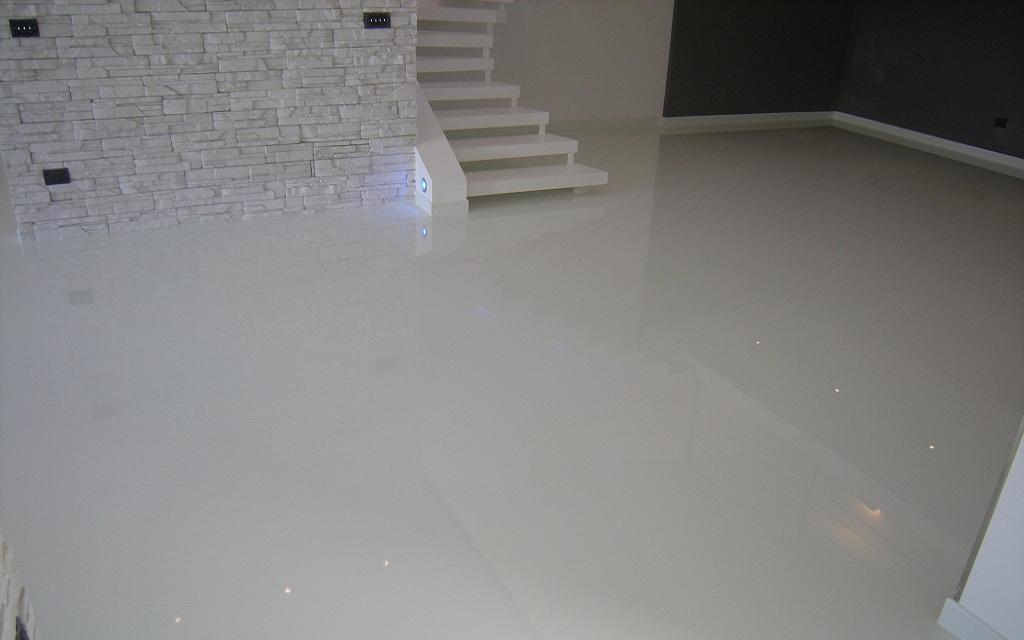
You’ve decided to put new epoxy flooring into your industrial space, and know you need to hire a contractor to get the job done. The problem is, you have no idea which contractor will give you what you need, or for that matter, what it is that you actually need. It’s a daunting endeavor, seeking out industrial floor coating contractors. Not knowing which way to turn, what to do first, or who to trust, and you run the risk of making a poor choice that could result in a very expensive case of buyer’s remorse.
We, the dedicated industrial flooring professionals at McLean Company want you to be thrilled with your new industrial epoxy flooring, and we are proud to offer this guidebook detailing what to look for in epoxy flooring contractors, and how to get the floor you want at a price you can work with.
Not All Epoxy Floor Coating Contractors Are Created Equal
There are a remarkable number of industrial flooring contractors promising “expert epoxy flooring installation” when the reality is, they may have taken a weekend primer or crash course in doing the job and are in fact, learning as they go. This experience can certainly be invaluable, but you don’t want to be the client paying for their hands-on training.
Also, as unfortunate as it may be, some contractors are simply not reputable, and hiring them is a sure path to aggravation, excessive down time and a considerable amount of money down the drain. The best way to protect yourself from disreputable or inexperienced flooring contractors who will disappoint you is to arm yourself with knowledge about epoxy floor coating, and what approach is going to work best for your individual needs.
Do Your Homework First
The finer points of epoxies and epoxy flooring is far too broad to full explore in a blog, but among the things you should be familiar with before beginning to research individual contractors are:
- What is an #epoxy?
- What is #polyurethane?
- What is the difference between water based and solvent based epoxies?
- What is the difference between an epoxy and a polyaspartic?
- What is a top coat?
- Will you need an #anti-slip additive?
Be able to answer each question before research #contractors. Knowing as much as possible the distinct advantages and disadvantages between types of epoxies, their properties and their applications will pay vast dividends when it comes time to compare and contrast what your narrowed list of possible contractors have to offer, and what they don’t.
Look for Licensed, Insured Contractors

Now armed with a basic working knowledge of industrial epoxy floors, we can begin to search for possible contractors to do the job we need based on what we now know about the different #flooring options available to us. It goes without saying that we want contractors who are licensed, bonded and/or insured, but it is important to know how to confirm proof of insurance, claim limits, expiration dates, and how to file a claim.
You should know how to confirm the prospective contractors’ licenses through online state and databases. Further, reputable contractors will be not only able to provide their documentation, they’ll be eager to do so. Any hesitance to produce the documents, and any excuse for being unable to do so immediately, should be considered a dealbreaker. 99 out of 100 times there are reasons they can’t and the time to find out why is not after your money is in their coffers.
Ask Potential Flooring Contractors Lots of Questions
Contractors should not only be eager to provide proof of their qualifications and proof of insurance, they should be eager to discuss the small details of their approach to the task, the materials they use, the expected timeframe, and any warranties or guarantees they have regarding their work. How long have they been in business? They should be happy to show an expansive portfolio of finished, high quality work, and to provide a list of references that can be independently confirmed.
Good flooring contractors can speak at length about the brands they use, and why. There should be an underlying confidence in the materials that comes through in the explanations they offer. Contractors who are vague about the brands they use will generally use whatever products are most affordable for them, not what is best for their client.
Ask about their floor preparation methods, and how they ensure the surface of the concrete will be properly prepped to be treated with epoxy. Beware of contractors who cut corners or take shortcuts.
Negotiate, And Get It in Writing
Once we have decided which contractor to go with, we want to go the extra mile and tend to the small details.
- Who will empty the space before they work and return the contents once the job is done?
- Is there room for negotiation like treating the cracks in the concrete at no extra cost?
- Are there any other extras like color chips that can be thrown in?
Finally, always get it in writing. You want any guarantees or #warranties on paper. Warranties tend to be better in relation to those offered by the competition, so don’t be afraid to haggle about competitor offers that you would like to see included, and always get it in writing.